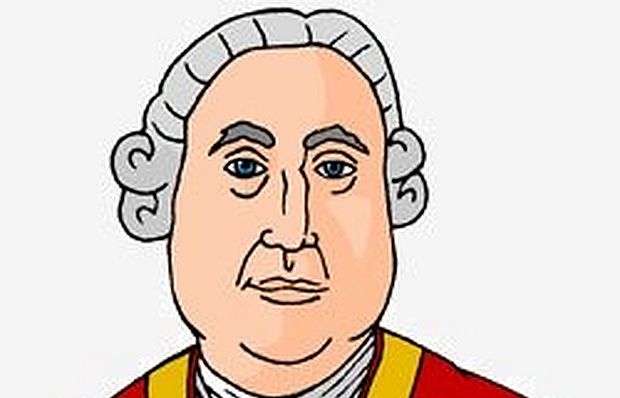It turns out that Mr. Hume’s anti-miraculous arguments aren’t as brilliant as they once seemed.
 Scottish sceptic David Hume (1711-76).
Scottish sceptic David Hume (1711-76).
One of the authorities most widely quoted by New Atheism is the Scottish sceptic David Hume (1711-76). Thanks to his fierce rebuttal of the miraculous back in the eighteenth century, it’s not hard to see why he’s so popular with non-believers.
In this article I’m going to analyze the reason he rejected the miraculous to see if his argument has as much weight as modern-day sceptics tend to think.
Here is his anti-miraculous thesis. Please read it slowly and carefully. This will be vital to understanding my message today. “A miracle is a violation of the laws of nature; and as a firm and unalterable experience has established these laws, the proof against a miracle, from the very nature of the fact, is as entire as any argument from experience as can be imagined” (An Enquiry Concerning Human Understanding).
If you’ve read the text closely, you’ll have seen that there are two reasons Hume discredits miracles. The first reason is the laws of nature. The second reason is the laws of experience upon which the laws of nature have been firmly established. So, following Hume’s reasoning, I’ll divide my critique of the Scot into two parts.
1.- The Laws of Nature
Perhaps the greatest irony of Hume’s appeal to the laws of nature is that he didn’t even believe in them! One of the reasons he is so well known in philosophical circles is precisely because he brought the uniformity of the laws of nature into question. In his An Enquiry Concerning Human Understanding he wrote that just because the sun has risen in the morning for thousands of years, that doesn’t mean it will continue to do so tomorrow. Past experiences cannot determine the future. Hume thus put a question mark over every empirical law of nature. So, then, why could miracles not be possible? Hume can’t have it both ways. Either he believes in the uniformity of the laws of nature or he doesn’t.
The scientific law against which Hume most protested was the law of cause and effect. And it just so happens that this is the most important law in the modern scientific enterprise. Without the assumption of cause and effect there can be no science. How else could scientists perform experiments and test their hypotheses? The scientific method would crumble to pieces without the cause-effect conviction. It was this theoretical folly that led the late Anthony Flew to condemn Hume in the following stern terms: “Hume’s scepticism about cause and effect and his agnosticism about the external world are of course jettisoned the moment he leaves his study”.
When Hume calls upon the laws of nature to deny miracles, he is shooting himself in the foot. He can’t appeal to something non-existent i.e. the uniform laws of nature.
2.- The Laws of Experience
To re-quote Hume he explains that the laws of nature have been established by “a firm and unalterable experience”. Now, when we talk about experience, we have to be modest in our definition of the term and not get carried away by our emotions. Our human experience is by no means absolute. Just because I’ve never experienced a certain phenomenon doesn’t mean it doesn’t exist. And the same rule applies to Hume. He may never have witnessed the resurrection, but that doesn’t mean others didn’t.
In order for his “firm and unalterable experience” argument to make sense, he would have to have access to every single experience of humankind ever recorded. And that, I’m afraid, is a blatant impossibility. Hume cannot just cast miracles aside in the name of some ambiguous law of experience. At any rate what about the “firm and unalterable experience” of the disciples? Why didn’t the Scot take their testimonies of the miraculous into account? How come he never bothered to study the arguments in favour of the historicity of the resurrection of Christ? Maybe the real problem for Hume was that since he had never experienced a miracle then he thought no-one else could have either. Did he really think that scores of martyrs would lay down their lives for a fairy tale that the apostles invented?
I’d say their feats and bravery were the perfect response to Hume’s argument that, “No testimony is sufficient to establish a miracle, unless the testimony be of such a kind, that its falsehood would be more miraculous than the fact which it endeavours to establish”. Why on earth would anyone shed their blood for a load of mythical baloney? They knew Jesus was alive!
If Hume is going to evoke such a law as that of experience then he should at least make sure his argument is going to hold tight. It’s no good appealing to experience when you don’t even bother to study it. Just making mention of a term doesn’t make you a master of it.
Conclusion
It turns out that Mr. Hume’s anti-miraculous arguments aren’t as brilliant as they once seemed. Firstly, his argument from the uniform laws of nature is self-defeating because he didn’t even believe in them himself. And secondly, his argument from experience is also thoroughly dissatisfactory given that the only experience he seems to take into account as valid is his own.
Final Score: Miracles 2-0 Hume. Keep believing for your miracle!

Las opiniones vertidas por nuestros colaboradores se realizan a nivel personal, pudiendo coincidir o no con la postura de la dirección de Protestante Digital.
Si quieres comentar o